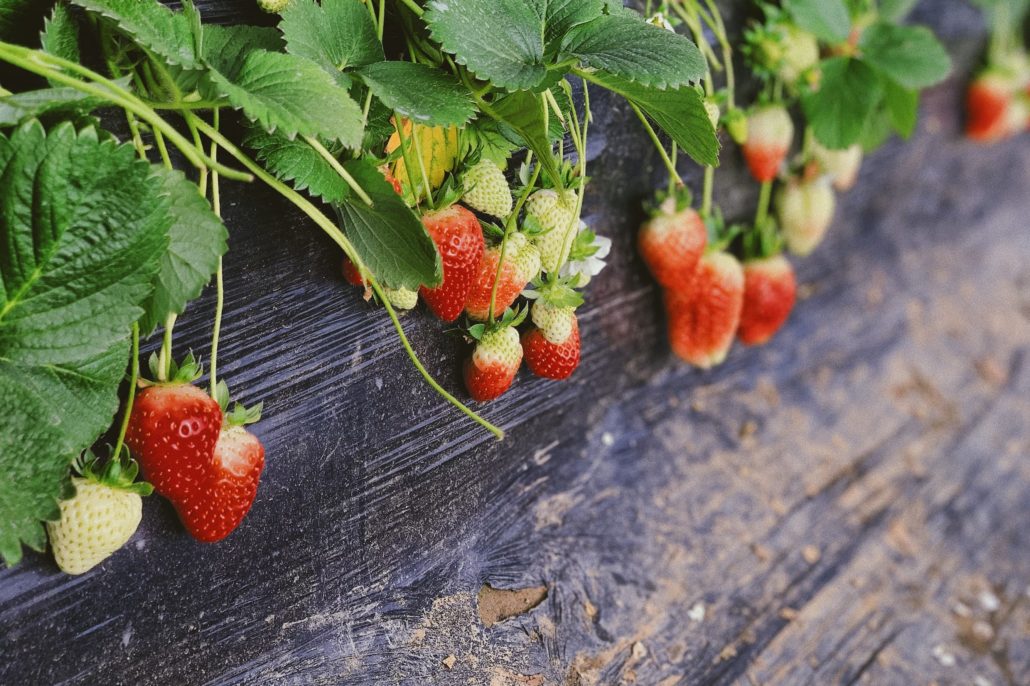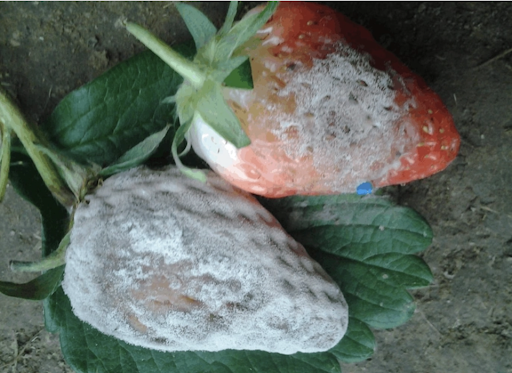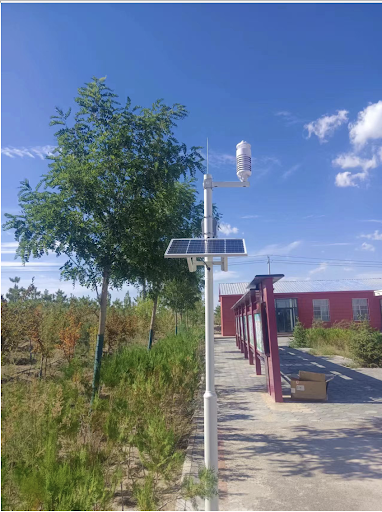Cultivating Success: The Crucial Role of Weather Data in Strawberry Cultivation
In the world of agriculture, data is the new soil, and weather data is its vital nutrient. Join us, as we explore how weather data, combined with our innovative solutions, is transforming farming practices. In this blog, let’s discover the sweet success of strawberry cultivation as a shining example.
Introduction
In the ever-evolving landscape of modern agriculture, technology has become the farmer’s trusted ally. At the heart of this transformation lies the treasure trove of weather data, a pivotal element that can make or break a harvest. In this blog, we delve into the profound impact of weather data in agriculture, spotlighting strawberry cultivation as an exemplar of its transformative power.

Strawberries are always regarded as luscious, crimson gems, which are beloved worldwide, finding their way into our breakfast bowls, desserts, and snacks. However, the path from farm to table is far from straightforward, and it all begins with the delicate art of strawberry cultivation.
The Influence of Weather Data on Strawberries
Strawberries are highly sensitive to weather conditions, and specific factors can significantly impact them. Gray mold, a common and harmful disease, is closely linked to certain weather conditions. The following parameters are significant factors contributing to the presence and spread of gray mold:

- Low Temperatures: Gray mold thrives when daytime temperatures consistently range from 15-20°C within the strawberry cultivation area.
- High Humidity: Excessive humidity, characterized by water droplets on the plants and moisture on the leaves, creates a welcoming environment for gray mold.
- Weak Light: Insufficient light intensity within the cultivation area further exacerbates the gray mold issue.
Weather Stations: Guardians of Strawberry Fields
Enter the hero of our story: the weather station. At Seeed Studio, we understand the critical role these devices play in agriculture. With our top-notch weather stations, equipped with sensors for air temperature, humidity levels, light intensity, rainfall, and atmospheric pressure, farmers can gain unprecedented insights into the weather’s whims.
Here’s how weather stations empower farmers in strawberry cultivation:
- Crop Growth and Irrigation: Farmers can track the growth status of their strawberry plants, making informed decisions about irrigation, a vital factor for crop health.
- Planting and Harvesting: Accurate weather forecasts guide farmers in choosing the optimal time frames for planting and harvesting, ensuring no precious yield is left behind.
- Pest and Disease Control: Weather data helps predict and manage pests and diseases, aligning farming practices with favorable weather conditions.
- Water and Fertilizer Management: Weather insights influence water and fertilizer management, ensuring efficient resource utilization.
What Features Are Required for Smart Cultivation in the Wild?
To assist villages in achieving digital transformation, selecting the right products is crucial. This is particularly important for villages located in rural areas, where environmental conditions can be challenging. When it comes to deploying IoT solutions for weather monitoring in strawberry cultivation or any other application, several key factors need to be considered:
- Stability and Reliability: Our devices are engineered for durability, withstanding harsh weather conditions to provide accurate and consistent data.
- Low Maintenance: Designed for minimal upkeep, our devices ensure sustainability, even in rural areas with limited technical support.
- Weather Resistance: Weather-resistant devices guarantee long-term performance, rain or shine.
- Lightning Protection: Our weather stations are equipped with lightning protection mechanisms to safeguard against damage.
- Remote Debugging and Management: With remote monitoring and troubleshooting capabilities, we make device management efficient and hassle-free.
Seeed Studio’s Smart Solutions for Smart Cultivation in Villages
We offer a range of high-quality weather stations, sensors, and edge AI devices, perfectly tailored to the needs of smart villages and modern agriculture.

- SenseCAP Weather Station S700: it measures air temperature, relative humidity, barometric pressure, light intensity, rainfall (optical), wind speed, and wind direction (ultrasonic). It is ideal for application in a rough environment like the outdoors, agriculture, or smart cities.
- SenseCAP 4G Data Logger: An industrial-grade 4G cellular station using MODBUS-RTU RS485 protocol for sensor communication. It collects various sensor data simultaneously and is IP66-rated for reliable outdoor use.
- SenseCAP Wireless Environment Sensors: Providing a comprehensive range of environmental sensors, including those for soil and CO2 monitoring.
- Solar Panel for Power: A high-efficiency 12W solar panel for smart agriculture and city applications.
- reComputer J3010 Edge AI Box: A versatile device for embedding models to detect various diseases, ensuring the health of strawberry plants.
We believe that every seed of data can yield a bountiful harvest. Join us in embracing the power of weather data in agriculture. Together, we’ll nurture the fields of tomorrow, ensuring they flourish with prosperity, one strawberry at a time.
Additional Resources:
For more information on Seeed Studio’s products and how they empower smart agriculture, visit:
- IoT Plant Monitor Using Seeed Studio XIAO ESP32C3
- SenseCAP LoRaWAN in Triticale Farming: Precision Agriculture and Sustainable Livelihood Development in Dingzhou, Northern China
- OPEN Sustainable Agriculture Experiment with SenseCAP on Jamaica Farms
- Smart Farming Together with Seeed Studio Edge Controller and reTerminal DM